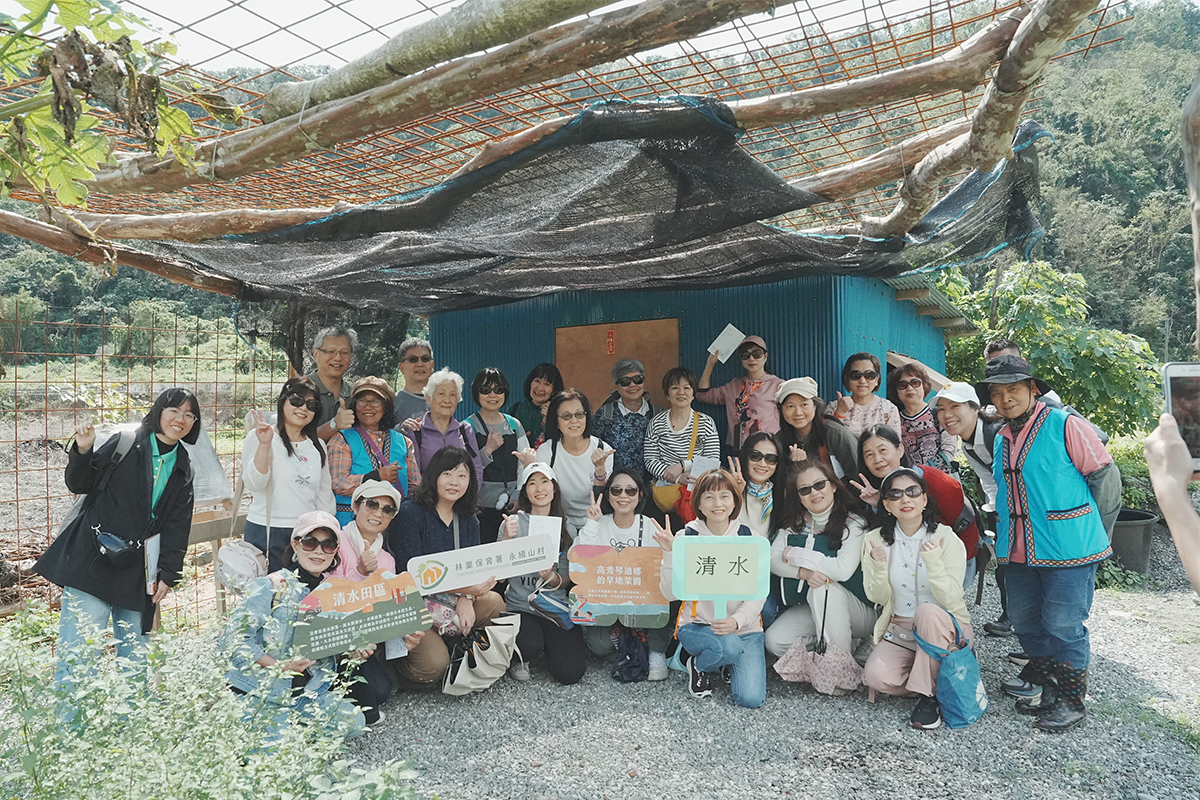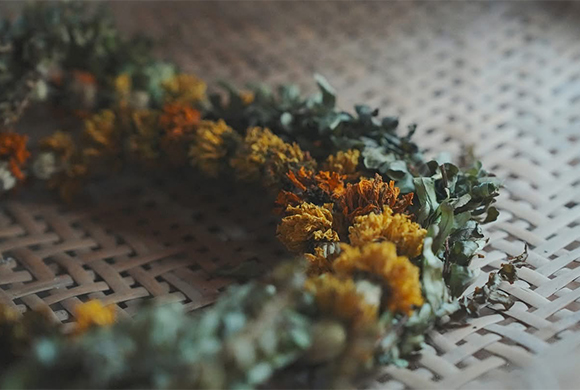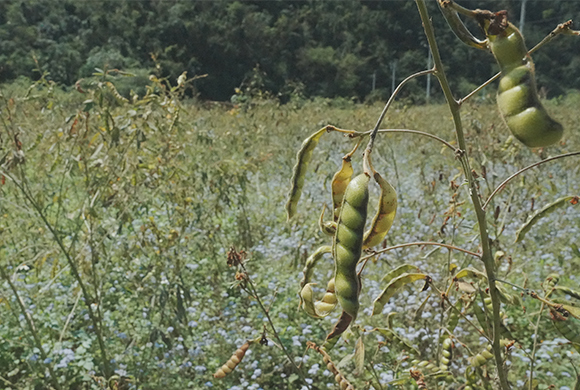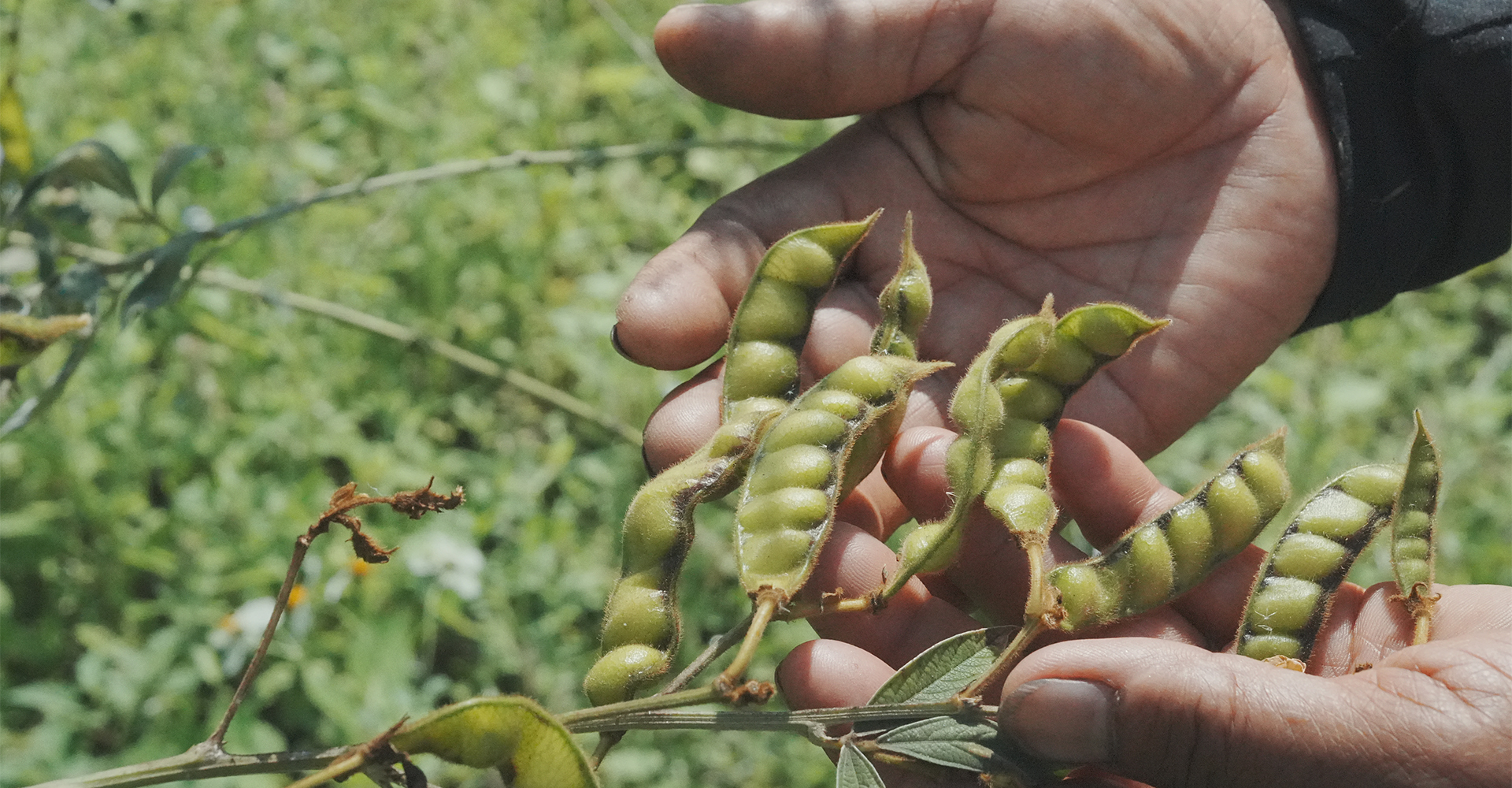
Wait, what?!
Why are there so many different crops growing at such varied heights in this garden?
And how can a dry field grow such a diversity of plants?
More surprisingly — the weeds haven’t been cleared, yet they’re thriving everywhere!
And why do the Bunun women treasure and preserve so many kinds of grains?
And finally... how did these humble beans turn into such stylish, delicious dishes?!
Stop guessing —
children make choices, but grown-ups come join this Qingshui mini trip,
and unlock all the answers at once!
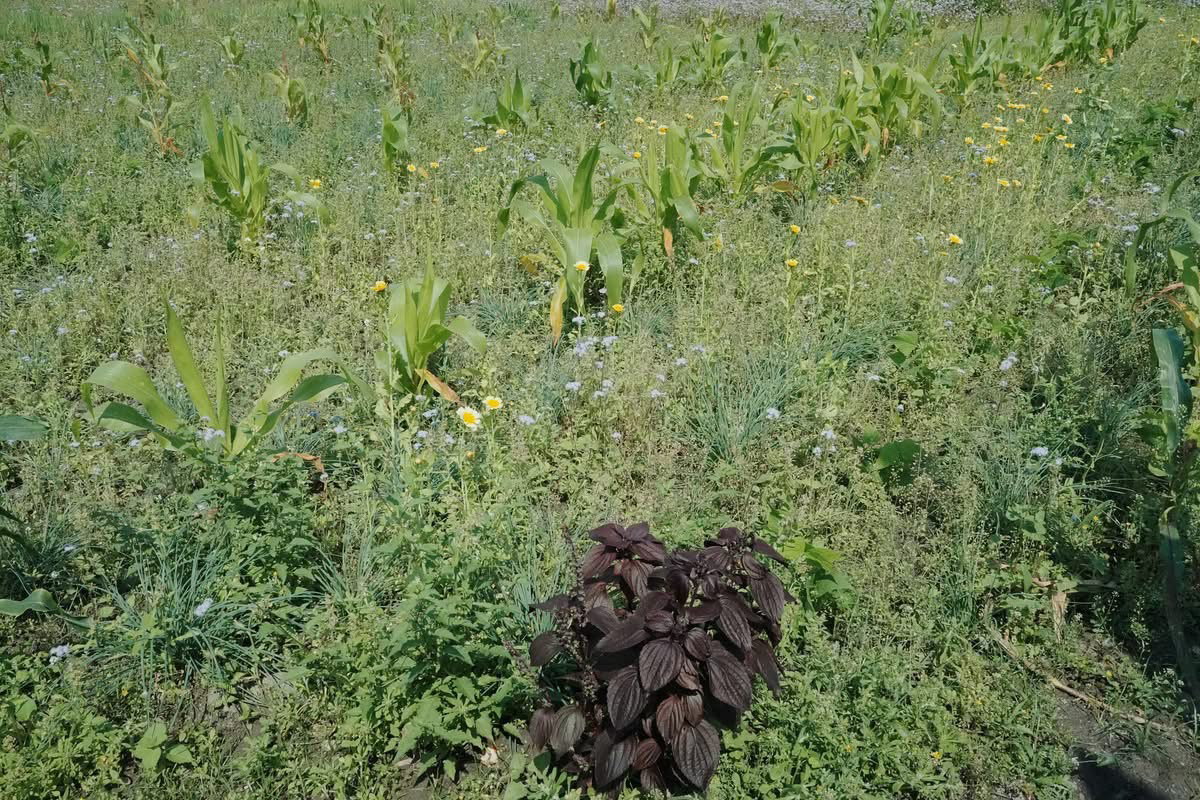 Intercropping diversity in the field
Intercropping diversity in the field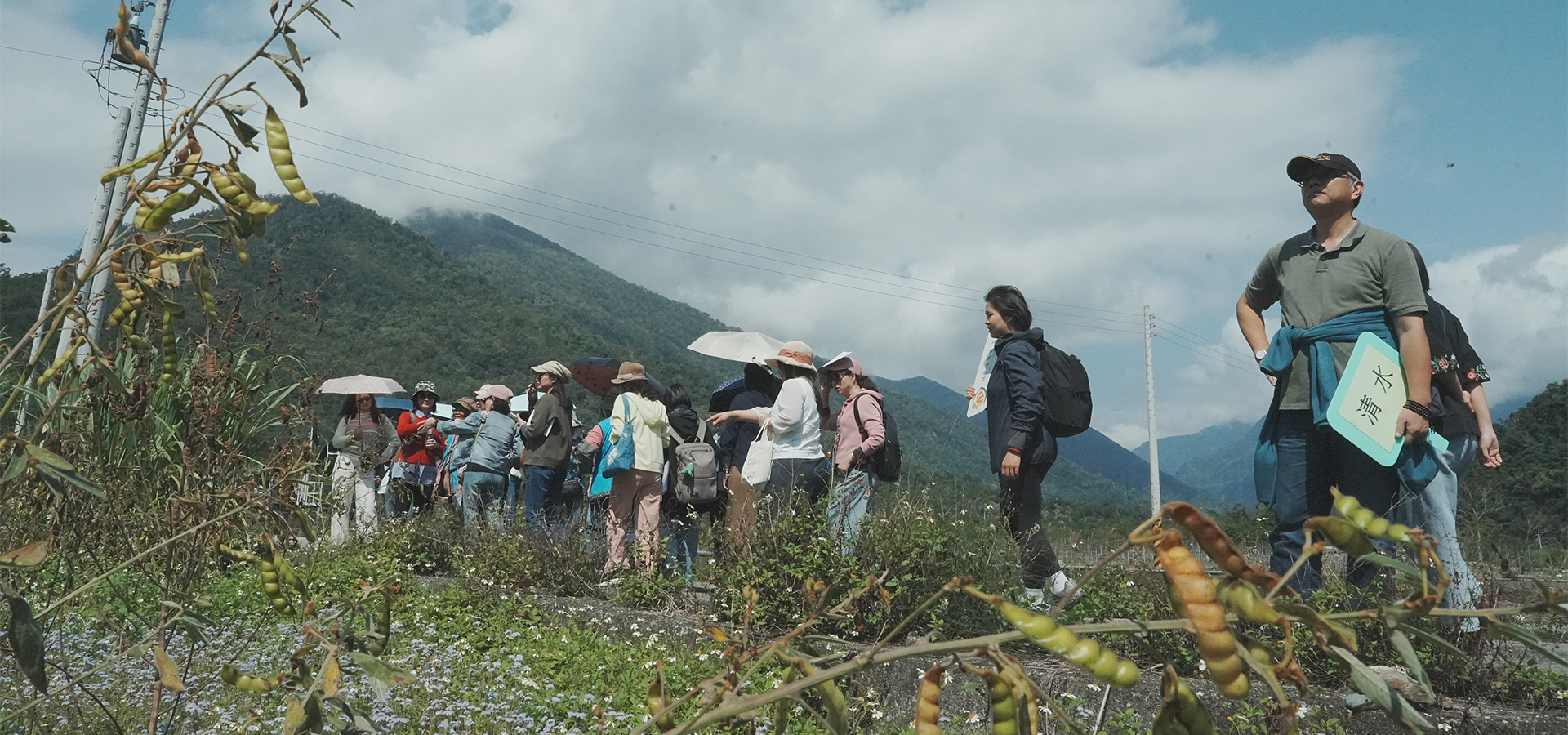
a breath of fresh air heals the soul
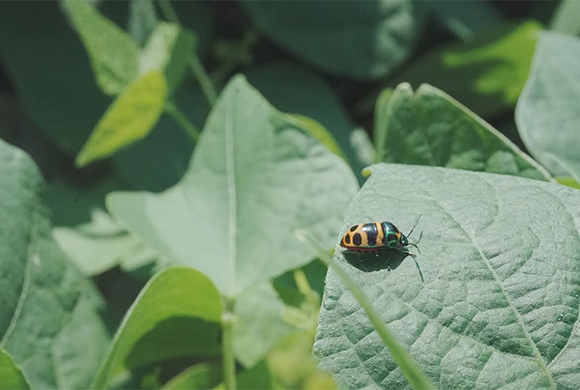
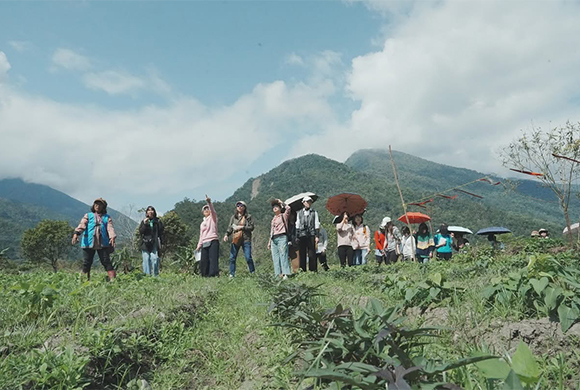

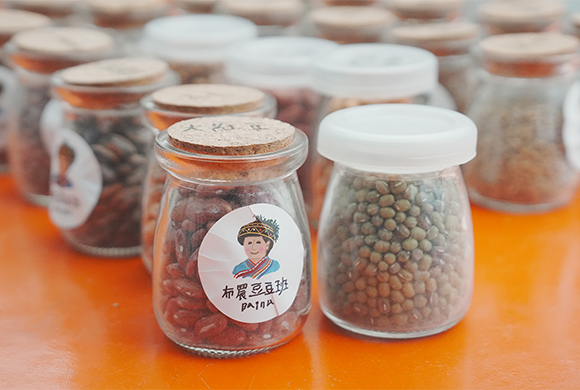
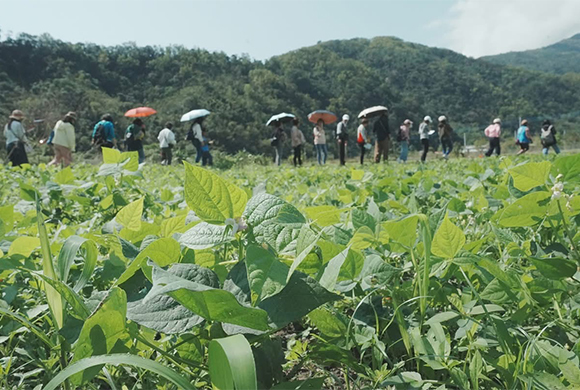
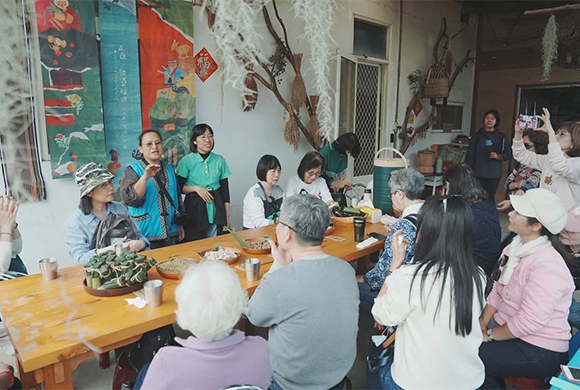 Tanifu (Wu Shao-Chi) introducing the ingredients and features of the bean-based dishes.
Tanifu (Wu Shao-Chi) introducing the ingredients and features of the bean-based dishes.🌿 Early Spring — Walking into the Women’s Fields
In the Qingshui community, spring arrives with tender green sprouts swaying in the breeze.
Millet has just poked its head out of the soil,
and the distant mountains stretch beneath a vast blue sky streaked with white clouds.
Walking through these open fields, breathing the crisp air —
you feel instantly healed.
“Wow, this field is full of tiny flowers! Are there crops growing here too?”
“Of course there are! Haha!”
Mua (Hu Yuying) and Uli (Kao Siu-Chin) — the Tinas — laugh as they part the tall weeds.
“Look, here are the baby bean sprouts — and over there too!”
This field, believe it or not, used to be all rice paddies — completely flooded.
The irrigation water came from the Qingshui River.
But years ago, when mining began upstream, the river’s water flow gradually changed,
and these paddies turned into the dry fields we see today.
And because they became dry fields,
many crops that could once grow only on mountain slopes can now thrive on flat land —
a testament to the wisdom of the Bunun ancestors.
The seeds here have been preserved within the community for generations —
planted, harvested, and saved year after year.
Some are even non-native species, possibly brought to Taiwan during the Age of Exploration —
and have been safeguarded by the Bunun people ever since.
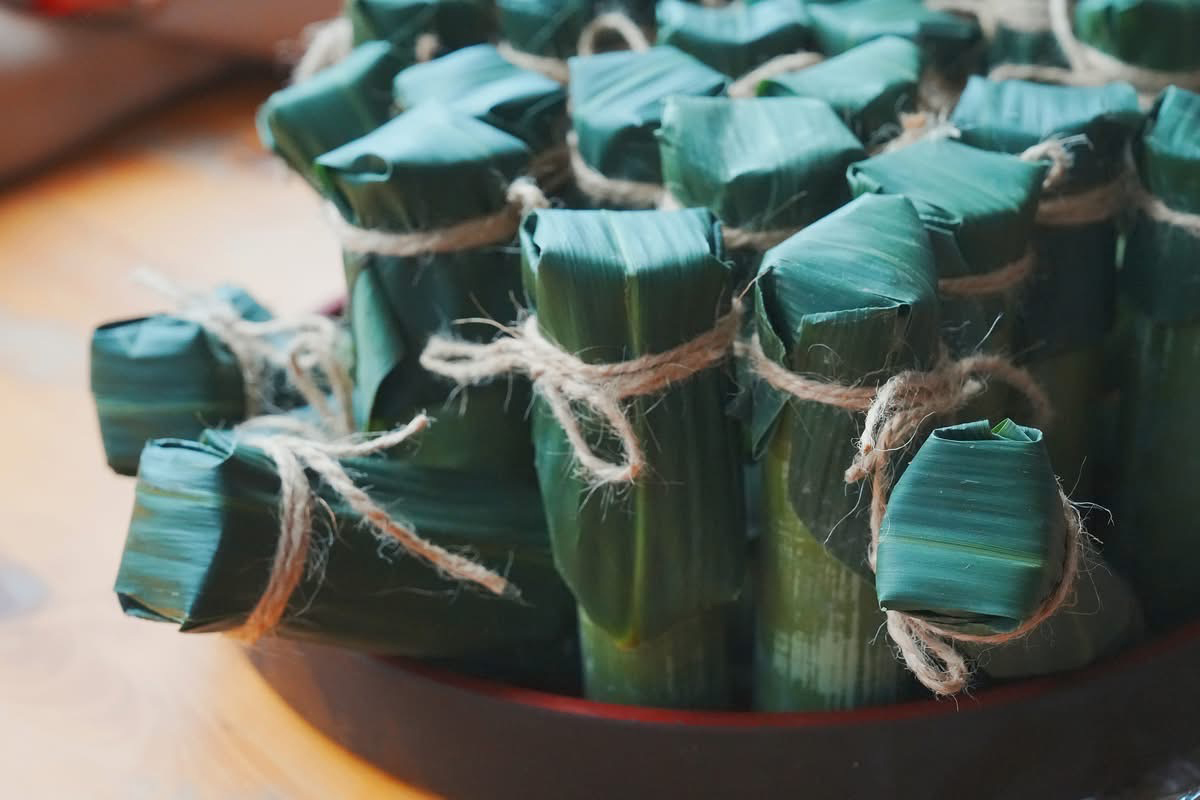 Moist bean yōkan (sweet jelly)
Moist bean yōkan (sweet jelly)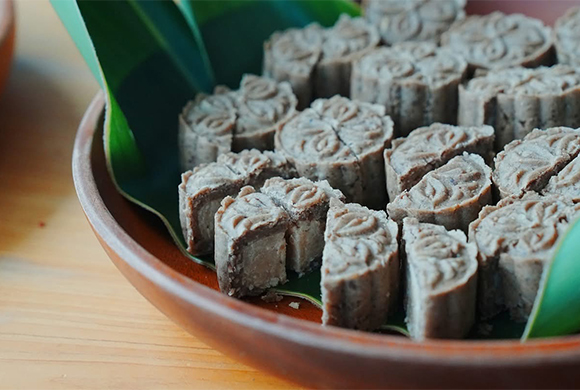 Bunun Bean Cake — <br>made from beans sprouted in winter, harvested in spring, shelled in summer, soaked in autumn water, then simmered slowly with sugar and butter
Bunun Bean Cake — <br>made from beans sprouted in winter, harvested in spring, shelled in summer, soaked in autumn water, then simmered slowly with sugar and butter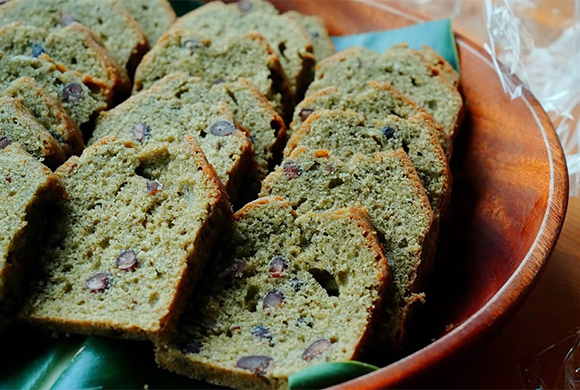
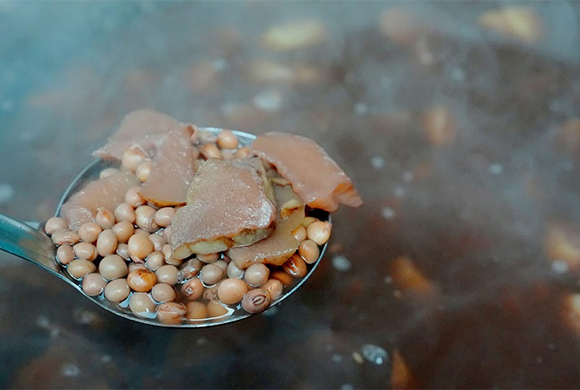 Fragrant tree bean soup
Fragrant tree bean soup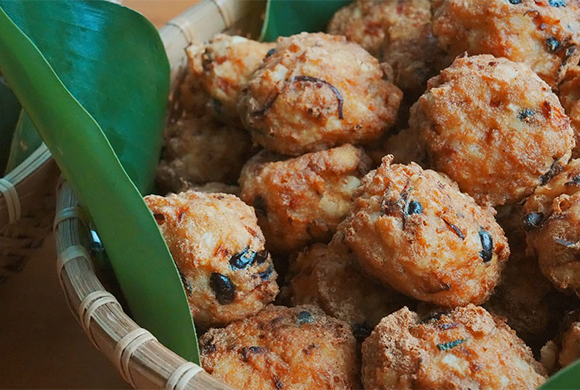 Bean tofu balls
Bean tofu balls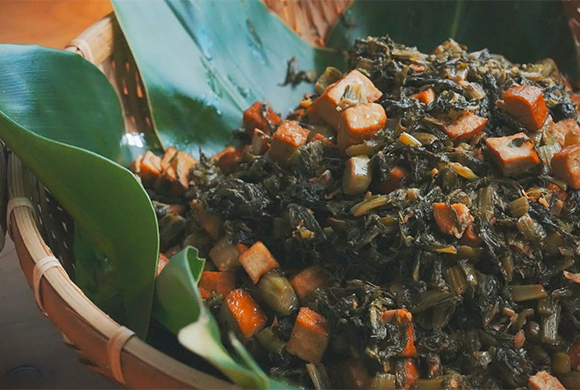 Stir-fried pickled mustard greens with dried tofu
Stir-fried pickled mustard greens with dried tofu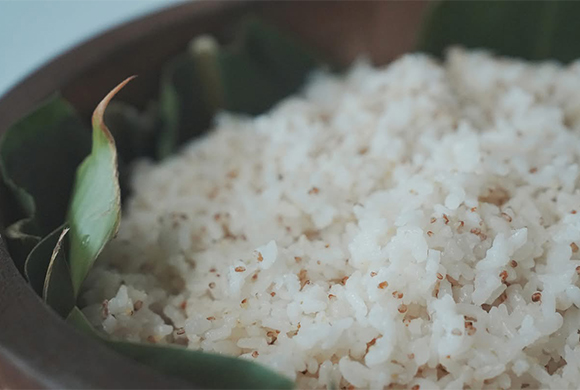 Fragrant rice with millet and oil millet
Fragrant rice with millet and oil millet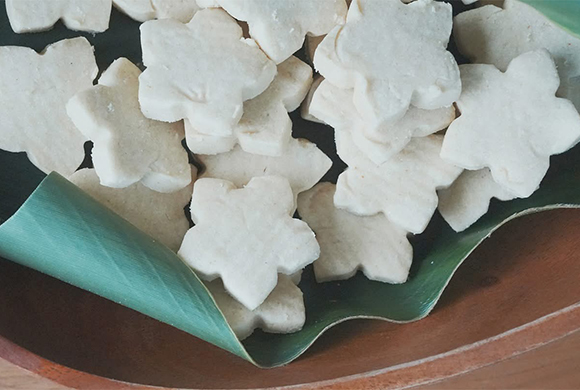
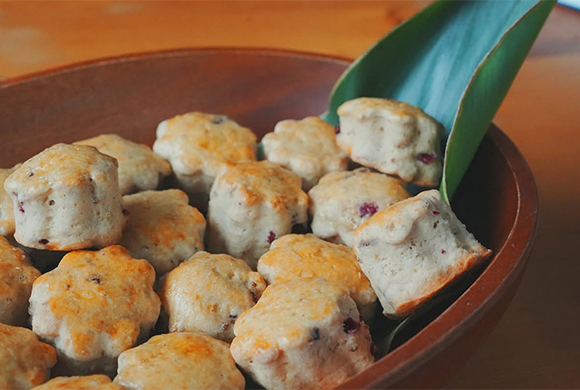 Bean scones
Bean scones🌿 The Secrets of the Field?!
Have you noticed that Tina plants sugarcane along the edges of the vegetable garden?
Those tall plants act as windbreaks — and even provide climbing supports for other crops.
“There are so many weeds! Don’t you remove them?”
“No way!” Tina laughs.
“The weeds help keep the soil moist.
If we pull them all out, the sun would dry the soil much faster!”
🌿 A Mini Trip for All the Senses
This little trip isn’t just about walking into Tina’s field —
it’s also about tasting Pisanglavan, through Tina’s lovingly cooked Indigenous meals.
Take a bite of the Bunun Bean Cake —
its rich flavor comes from beans sprouting in late winter, harvested in late spring,
shelled in early summer, then soaked overnight in clear autumn water
before being slowly simmered with sugar and butter.
One bite, and you can taste the seasons of the field.
With the skillful hands of Tanifu (Wu Shao-Chi),
this special recipe has become a source of pride for Zhuoxi.
And there’s more —
moist bean yōkan (sweet jelly), bean scones,
fragrant rice cooked with millet and oil millet,
wild-vegetable scrambled eggs,
pickled roselle flowers, and bean tofu balls.
And of course — that big pot of aromatic tree bean soup...
As the breeze passes through the millet fields,
the red quinoa glows under the sunlight, tinting everyone’s cheeks with a rosy hue.
We enjoy the hearty bean dishes
while listening to Tina and her community share stories of this land...
